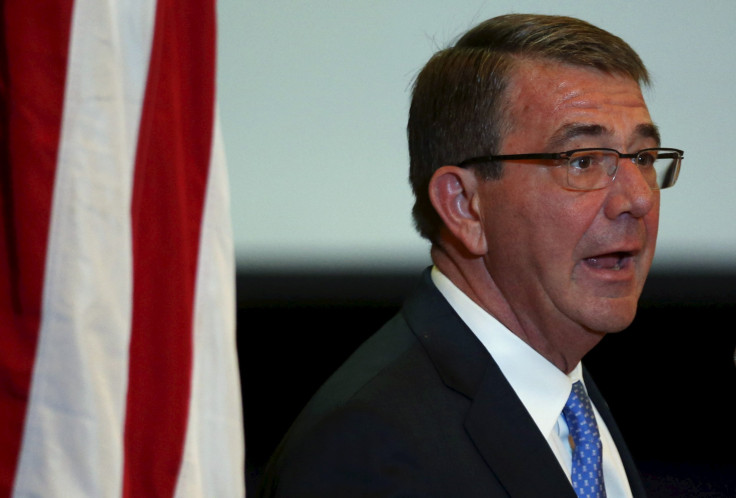US To Send More Troops To Iraq To Tackle ISIS

The United States will send more troops to Iraq and will put them closer to the front lines of battle there to advise Iraqi forces in the war against Islamic State group militants.
U.S. defense officials said Washington will deploy about 200 additional troops, mostly as advisers for Iraqi troops as they advance toward Mosul, the largest Iraqi city still under control of the Islamic State group, also known as ISIS.
The United States has also authorized the use of Apache attack helicopters to help the Iraqis as they can provide quicker air support and precision fire.
The advisers will accompany Iraqi units of about 2,500 troops moving closer to the front lines of battle. Until now, the advisers were limited to larger divisions of about 10,000 troops located further back from the battlefield.
The change will allow them to offer quicker advice to Iraqi troops as they try to retake Mosul, likely facing stiff resistance from an entrenched enemy. But it could also leave the U.S. advisers more vulnerable to enemy mortars and artillery.
"This will put Americans closer to the action," U.S. Defense Secretary Ash Carter said. "Their whole purpose is to be able to help those forces respond in a more agile way."
The decision to enlarge the U.S. military force was made in close concert with Iraqi authorities, said Carter, who met U.S. commanders and Iraqi officials including Prime Minister Haider al-Abadi on a visit to Baghdad.
Iraq is engulfed in a political crisis over anti-corruption reforms that is crippling state institutions and threatening to slow the campaign against the militants.
The increase raises the authorized troop level in Iraq to 4,087, not including special operations personnel, some logistics workers and troops on temporary rotations.
The Pentagon will also provide up to $415 million to Kurdish peshmerga military units, who have played an important role in pushing back ISIS in northern Iraq. Part of that funding will likely be spent on basics like food, said Lt. Gen. Sean MacFarland, head of the U.S.-led coalition battling the Islamic State group.
"Right now the peshmerga are not getting enough calories to keep them in the field," MacFarland said.
The increase is the latest move by the United States, which invaded Iraq in 2003 to overthrow Saddam Hussein, to step up its campaign against the hard-line Sunni jihadists.
Since December, Iraqi forces trained by the U.S. military and backed by coalition airstrikes have taken back territory from ISIS, which seized swathes of Iraq and Syria in 2014.
Escalating Support
Some U.S. troops already in Iraq will be shifted to establishing logistics for Iraqi forces as they move toward Mosul, Carter said. These include supply lines, particularly important as Mosul is 250 miles north of Baghdad.
Most of the new U.S. advisers, which will make up the bulk of the new troops, will be Army special forces, as are the about 100 advisers now in Iraq. The rest of the troops announced on Monday include support crew for the Apaches and security forces to protect the advisers.
The United States will also deploy an additional long-range rocket artillery unit to support Iraqi ground forces in the battle for Mosul, Carter said. Two such batteries are already in place in Iraq.
The officials did not rule out the possibility that lasting success might require further U.S. commitments.
"If it doesn't take us all the way, we'll come back and have another discussion and ask for more if we need to," McFarland said.
© Copyright Thomson Reuters 2024. All rights reserved.











